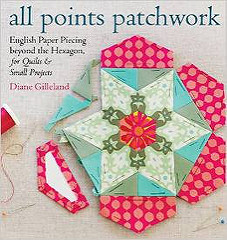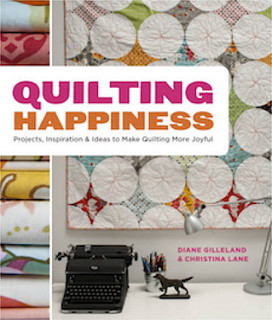You are here
How Well Will Your Publisher Market Your Book? (How to Find Out)
Image by Philip Chapman-Bel, via Flickr
I hope you won't mind one more book-writing post. While it's fresh in my mind, I want to expand on something I said in the previous post:
"Because a publisher has access to markets beyond what you can reach on your own, a book can be a way to reach new potential customers for another business you already have. (Assuming you get good marketing support from your publisher, which is something you should look into before you sign a contract.)"
I thought that idea deserved a little focus because unfortunately, not all publishers are created equal when it comes to marketing support. As always, that's not a case of publishers being nefarious; it's a case of them facing steep business challenges and cutting costs.
Image by med-i, via Flickr
My publishing experience has been a mixed bag so far: I've had pretty good marketing support for one book, almost no support for another, and very good support for my soon-to-be published third book.
Here's what I find interesting about working with a publisher: when I put a book proposal together, I always have to include a section that details all the things I'm going to do in order to market that book. I have to list all the traditional and online media contacts I have, all the online promotion I plan to do, the events I'll put on, etc.
Does the publisher have to provide me with similar assurances that they'll market my book as hard as I will? No, not currently. That's always been treated as a given, but increasingly in publishing, it isn't. I've had so many friends, especially in the last two years, who've gone through the work of making a book only to discover that their publisher isn't doing much to market it. I've even had friends whose publishers ended up eliminating their marketing teams!
Image by arbyreed, via Flickr
Why is marketing support important? Because marketing is a rather hidden and perfectly enormous part of writing a book. And it's an ongoing job. Many new authors think only in terms of the big launch, but if you want your book to sell and bring you the other benefits we discussed in the last post, then you actually need to be promoting it over and over again, until it's out of print.
…But let's face it, marketing is a very different skill than the skills you used to make your book. Maybe you're great at marketing and don't need anyone's help. But if marketing's not your strong suit, then you need the support of a professional marketing team.
If you're an aspiring author and you're considering working with a particular publisher, here are some very good ways to assess that publisher's marketing skill….
Image by Théo, via Flickr
Things to do way before you have a book idea to sell:
• Subscribe to publishers' consumer email lists. You can go to a publisher's website and look for invitations to sign up for "updates on our new titles." See what kinds of email newsletters the publisher offers, and how targeted they are to a specific audience. Then, subscribe and pay attention to the emails. Is the content interesting to you? Are new books presented in an engaging way? How often do you hear from the publisher? This is all good information to have.
• Follow publishers on social media. Same idea here – what is the publisher saying on its social media channels, how interesting are they being, and how often are they posting? Check for Twitter, Facebook, Instagram, and Pinterest feeds. Subscribe, and see what you think of the content as a consumer.
Blogging deserves special mention here. Some publishers are maintaining active special-interest communities through blogs, and some seem to be pasting press releases into boring corporate blogs. You'd have awesome and ongoing opportunities to market through the former kind; not so much through the latter. Subscribe to lots of publisher blogs and see who's doing what. (And incidentally, in many RSS readers like Feedly or Bloglovin, you can even see how many subscribers a feed has, which is good information.)
Image by Guy Orlando Rose & Mike Licht, via Flickr
Things to do if you're a blogger yourself:
• Become a book reviewer. Reviewing books on your blog is an excellent way to create relationships with marketing people at various publishers. And from those interactions, you learn a lot about how a book of yours might be presented to other bloggers.
Many publishers have some kind of blogger mailing list. Check websites to see if there's a sign-up form, or if not, look for a contact email for marketing and write a nice note to introduce yourself and your blog. You should mention what kinds of books you're interested in reviewing and your blog's current readership. (Another good tactic: post a review of a book you already own, and then email the publisher's marketing contact with a link.)
Image by Susana Fernandez, via Flickr
• Observe how you're treated as a blogger. Once you're on a publisher's blogger list, you can see how good a job they do at reaching out for marketing. Let me give you two examples from my experience:
- - Publisher A has a super nice publicist who sends me an email whenever he has a title coming out that he thinks is a good fit for my blog. He always offers a cover shot and any other images I might need. He even sends me a thank-you email when my review posts.
- - Publisher B has been sending me knitting books for the past two years. I've tried asking several publicists there to stop, since I don't know how to knit and never blog about knitting. But there seems to be a revolving door of new publicists there, and each one has assured me they'll get the problem fixed. And then they don't.
…So, which publisher do you think might do a better job marketing your book?
Image by andresfranco.net, via Flickr
• See how good their marketing ideas are. When publishers contact you about blogging their new releases, are they using the same tired blog-tour/giveaway formula for every book, or are they coming up with more interesting promotions?
• Watch the comings and goings. When you have a blogger relationship with a publisher, you have an inside view of how committed that publisher is to its marketing team. Are people getting laid off frequently? Are interns handling the marketing, or dedicated publicists? That's all good information to have.
Image by viZZZual.com, via Flickr
Things do to once you have a book proposal:
Backchannel, backchannel, backchannel. The best place to get a good picture of how a publisher handles marketing is to talk to other authors. Go to a publisher's website and look at the books they've published within the last year. Find a few titles that are related to your book idea. Then go to the author's website. find an email address, and contact the author. Explain that you're considering doing a book with her publisher and ask about the marketing support she received. Most authors will be more than happy to discuss their experiences.
• Be freaking direct about it. When you find yourself in conversation with a publisher, ask point blank: How much marketing, and what kinds, can I expect your team do to for my book? See how specific they get in their answer. See if they can give you examples of good marketing they've done for other books similar to yours. See if they offer to put you in touch with someone on their marketing team. See if they HAVE a marketing team.
I hope this is useful, aspiring craft-book authors. I'm not saying you shouldn't work with a publisher who doesn't offer much marketing support. I'm just saying that this is information you need to have before you sign a contract.
And of course, in the 18 or so months it takes to make a book, a whole lot can change. So you're not exactly handing yourself a guarantee. You're just minimizing your future surprises. Right?







![Validate my RSS feed [Valid RSS]](../../../sites/files_cp7/valid-rss.png)
Comments
This is a great post! Would it be easy (or do you know of somewhere else)to share a list of main craft book publishers? I know a few, but it might be helpful if someone was researching thoroughly like you suggest.
Well, the thing is, there are a lot more publishers than we might think, with smaller ones getting into the craft book game and larger ones moving on from it. So that list would need constant updates.
The research I'd recommend doing instead is this: start with the kind of book you'd like to write. Visit some bookstores and thumb through recent books like that until you see some whose design/layout/presentation you like. And make note of those publishers - they're good places to start your marketing "due diligence."
Well, the thing is, there are a lot more publishers than we might think, with smaller ones getting into the craft book game and larger ones moving on from it. So that list would need constant updates.
The research I'd recommend doing instead is this: start with the kind of book you'd like to write. Visit some bookstores and thumb through recent books like that until you see some whose design/layout/presentation you like. And make note of those publishers - they're good places to start your marketing "due diligence."
I don't personally have any book plans at the moment, but that is a great idea! I will keep it in mind if I ever feel like I have a stroke of genius :)
I too have have more than one publisher and have had totally different support when it came to marketing.
Publisher A was a huge publishing house with a tiny craft department that was sold off about 8 months after my book was released. Needless to say, this book was not marketed but them past giving out books for a blog tour that I arranged.
Publisher B, on the other hand, was amazing! After my first experience I didn't expect much. This publisher is a very small publisher and had a amazing team!! So, I totally and completely agree with everything that you have said in the post. Yes, join in on all of the lists and social media sites to see what a publisher is doing for their books.
My personal experience is a testament to the marketing efforts of the company. Thanks to efforts of Publisher B's marketing department, the book earned out in the first two quarters. Sadly, I have no hope that the Publisher A book will ever earn out.
Part of the whole writing process is under a veil. It's so mysterious. Thanks for sharing this, it's ever thing I wish I knew back in beginning.
Thanks,
Kelly
Not to be too big of a grouch about this subject but it IS a sore spot with me. As I understand it, publishers seem to feel that craft books don't make money. I find it amazing that publishers just doesn't get it. Most successful companies rely on professional marketing teams instead of depending on amateurs (sorry writers but most of you are). Sport shoe manufactures do not rely on shoe designers to market. It is a poor business model and it has been in place far too long. Publishers lose. Writers lose.